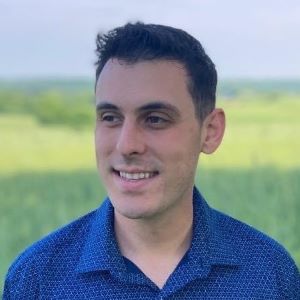
迈克尔B
Managing Full-Time College: Michael B
In my first two years of high school, academics came easily to me and I was an honors student. As a member of the National Honor Society, National Technical Honor Society, and student council, my future looked bright. I made plans to major in computer science in college.
However, during my junior and senior years of high school, I started struggling academically and losing interest in the hobbies I had always enjoyed. I began experiencing extreme anxiety and alternated between sleeping hours on end and being unable to sleep for days at a time. My teachers, family, and friends began to notice something was different, but they did not know what it was. At the time, no one in my life realized this was the beginning of my journey into the world of mental illness.
我勉强从高中毕业。幸运的是,由于我之前的学业成绩,我已经以全额奖学金被奥沙克学院录取。
2016年,在我大学的第一个学期,我经历了第一次妄想和偏执的感觉。我以为我的老师反对我。我相信潜意识信息正在从电视和广播中传播。我难以入睡,无法及时醒来上课。当我做作业时,我发现自己一遍又一遍地阅读相同的课文而没有理解。
由于无法集中注意力,我翘课并把自己隔离在房间里。我不明白为什么功课变得如此困难。那年夏天,我的课程不及格,回到家时感到困惑和沮丧。
Over the course of the next several months, my mental health continued to decline. I wasn’t sleeping and I experienced cognitive issues. I began having visual, auditory, and tactile hallucinations: hearing voices and experiencing extreme fear. I was no longer able to study or work. My parents sought treatment for me, and in November 2016 I was diagnosed with schizoaffective disorder.
We tried numerous medications and treatment options for improved cognition and anxiety control: clean eating, gluten and dairy free foods, supplements, vitamins, and holistic and naturopathic medicine. Nothing worked. Finally, in my desperate and confused state, I believed that more medication might work better to relieve my symptoms, and I took a two-week supply of medicine all at once. This resulted in me being picked up by ambulance and hospitalized with multiple organ failure. This was my fourth and last hospitalization.
After 13 failed antipsychotics, numerous mood stabilizers and antidepressants, and four hospitalizations, my parents finally found a doctor who was unwilling to give up on me. This doctor started me on a rarely used medication called clozapine, for treatment-resistant patients.
On clozapine, my concentration and memory began to improve. I began to experience less anxiety and fear and I started to enjoy old hobbies like reading. Over several months, the delusions, hallucinations, and voices faded away. As these schizophrenia symptoms began to fade, my cognitive abilities slowly improved. I enrolled in community college and each semester proved a little easier than the last.
I have now been in meaningful recovery for five years. I am back at my previous college, which is three and a half hours away from home, and I am living in a dorm on campus again. I work 15 hours a week in the campus library. I have made friends and am enjoying college life. My grades are excellent.
In 2019, I founded a NAMI peer support group in my hometown for people living with mental illness (NAMI stands for National Alliance on Mental Illness). In 2020, I started a NAMI on-campus support group for the Metropolitan Community College of Kansas City. I am a board member of NAMI of Greater Kansas City and the program director for all NAMI on-campus groups in Kansas City colleges. I have been arranging Zoom meetings, and people from all over the United States attend virtually. I was featured on the PBS Documentary, “The Hidden Pandemic.”
我最近将我的专业从计算机科学改为社会工作。毕业后,我想从事心理健康领域的工作。我相信精神疾病患者需要帮助、希望和理解,我想与患者一起改善他们的生活。我想让他们知道,使用正确的药物可以康复,而且他们并不孤单。
我希望通过分享我的故事,让更多的年轻人寻求合适的治疗,让他们能够像我一样重建自己的生活。
免责声明:精神分裂症幸存者不是 CURESZ 基金会的代表。

